Creating a trial template
Trial templates are an efficient way of creating experimental trials.
The AdvancedTutorial experiment
In the Basic Tutorial, we created a simple picture matching experiment with a single trial. In the Advanced Tutorial, we’ll (sort of) add a research question:
What is the time course of interpreting English agreement morphology, in particular the third person singular inflectional morpheme -s?
Ultimately, this question is beyond the scope of this tutorial, but we can use it as a starting point.
We’ll use nouns that have identical singular and plural forms to create sentences that disambiguate only at the verb, such as “The fish swims…” vs “The fish swim…”. Participants will hear an initially ambiguous sentence, and must choose as quickly as possible between an image with one animal and an image with two animals.
Experimental design
We’ll use a within-item, within-participant design with 2 conditions:
- 2 conditions: singular verb inflection and plural verb inflection
- Within-item: across participants, each item occurs in both conditions
- Within-participant: every participant sees items from both conditions
Experimental items
In this example experiment we’ll use 4 experimental items and no fillers. The within-item, within-participant design results in 2 lists of items:
| group | item | sentence | inflection |
|---|---|---|---|
| A | 1 | The fish swim in a tank which is perfectly round | plural |
| A | 2 | The deer runs in a wood which is extremely dense | singular |
| A | 3 | The sheep roam in a pen which is strikingly blue | plural |
| A | 4 | The moose walks in a park which is visibly new | singular |
| group | item | sentence | inflection |
|---|---|---|---|
| B | 1 | The fish swims in a tank which is perfectly square | singular |
| B | 2 | The deer run in a wood which is extremely sparse | plural |
| B | 3 | The sheep roams in a pen which is strikingly red | singular |
| B | 4 | The moose walk in a park which is visibly old | plural |
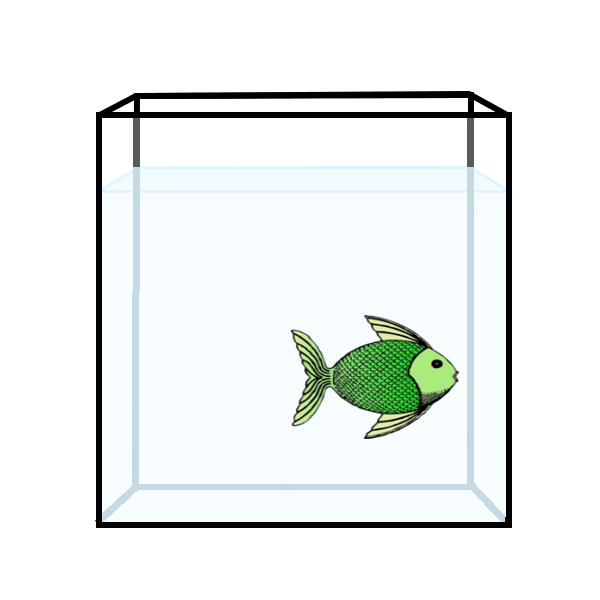
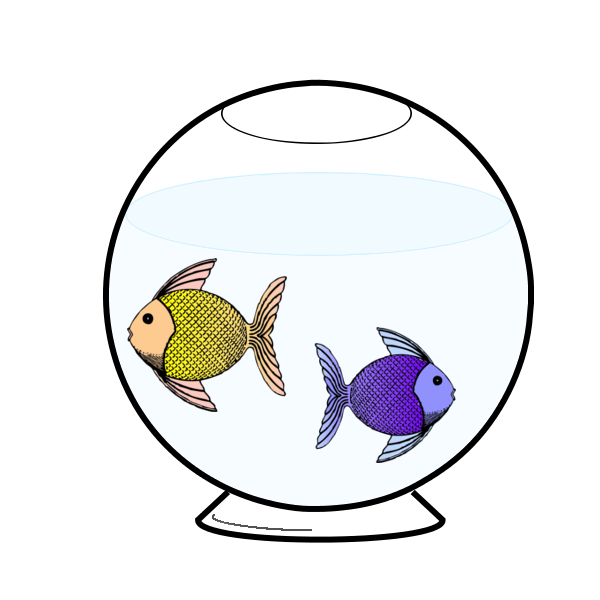


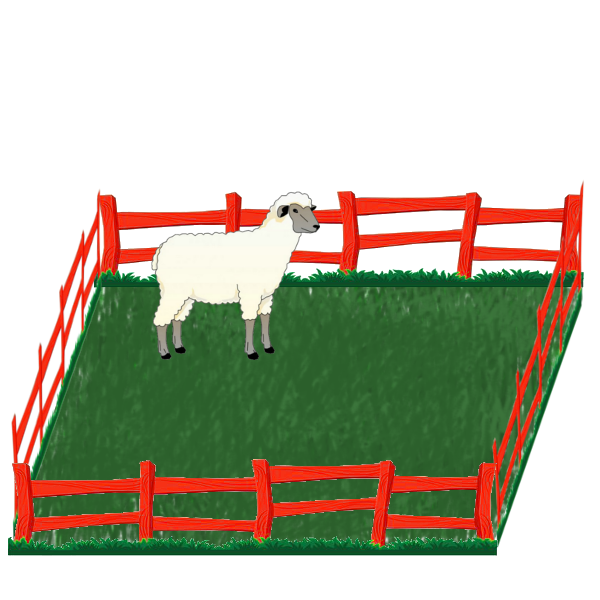
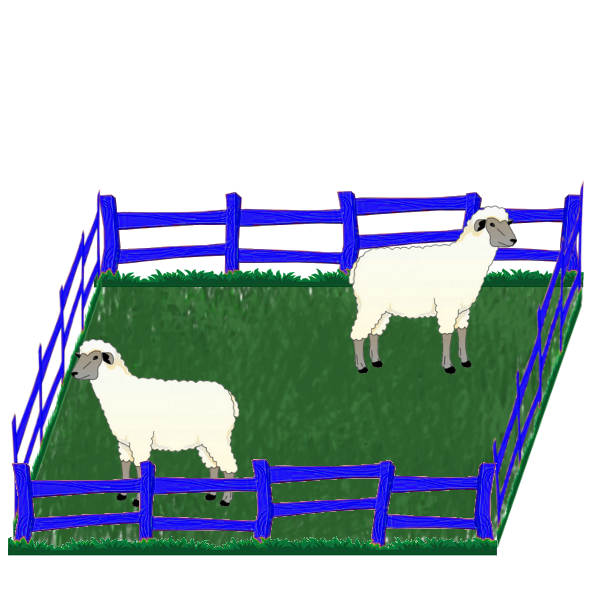
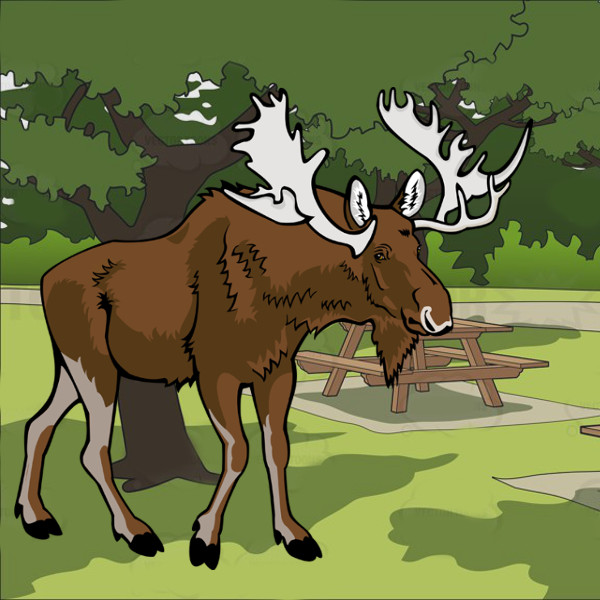
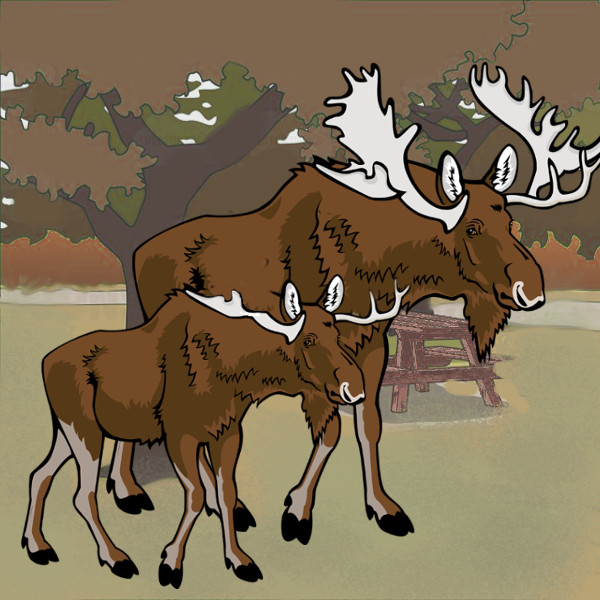
Trial templates
Each iteration of the AdvancedTutorial experiment has four items and thus four experimental trials.
We could copy-and-paste the "experimental-trial" trial code multiple times and change variable names as necessary, but this method is not recommended for several reasons:
- Prone to copy-and-paste errors, like forgetting to change a source file name.
- Difficult to make changes to general trial structure, because each copy-and-pasted trial must be updated individually.
- Greatly increases overall length of experiment script.
Instead, we’ll use the global command Template to define a trial template.
A trial template is a template for creating trials: it’s a trial that’s partially complete, with some values (represented by variables) to be added in “later”. During script evaluation, PennController fills in the variables with values from a specified table.
Tables are CSV (comma separated value) files that are either imported into an experiment page’s Resources folder, or defined within an experiment script.
Using a table
We’ll use the items.csv table, which was included during the set up of the BasicTutorial experiment.
Note: You may need to scroll to the right to see all the columns.
| group | item | sentence | inflection | audio | duration | singular_image | plural_image |
|---|---|---|---|---|---|---|---|
| A | 1 | The fish swim in a tank which is perfectly round | plural | 2fishRoundTank.mp3 | 2676 | 1fishSquareTank.png | 2fishRoundTank.png |
| A | 2 | The deer runs in a wood which is extremely dense | singular | 1deerDenseWood.mp3 | 2650 | 1deerDenseWood.png | 2deerSparseWood.png |
| A | 3 | The sheep roam in a pen which is strikingly blue | plural | 2sheepBluePen.mp3 | 2598 | 1sheepRedPen.png | 2sheepBluePen.png |
| A | 4 | The moose walks in a park which is visibly new | singular | 1mooseNewPark.mp3 | 2546 | 1mooseNewPark.png | 2mooseOldPark.png |
| B | 1 | The fish swims in a tank which is perfectly square | singular | 1fishSquareTank.mp3 | 2833 | 1fishSquareTank.png | 2fishRoundTank.png |
| B | 2 | The deer run in a wood which is extremely sparse | plural | 2deerSparseWood.mp3 | 2650 | 1deerDenseWood.png | 2deerSparseWood.png |
| B | 3 | The sheep roams in a pen which is strikingly red | singular | 1sheepRedPen.mp3 | 2755 | 1sheepRedPen.png | 2sheepBluePen.png |
| B | 4 | The moose walk in a park which is visibly old | plural | 2mooseOldPark.mp3 | 2441 | 1mooseNewPark.png | 2mooseOldPark.png |
If a table contains a column named group or row, PennController will automatically alternate which group of items is run! In this case, there are two groups, so every odd-numbered participant will only see the 4 items from the A group, and every even-numbered participant will only see the 4 items from the B group (or vice versa).
Creating a trial template
A trial template is basically a regular trial surrounded by Template():
+Template(TABLE_NAME, row =>
@ newTrial("TRIAL_LABEL",
! newX("ELEMENT_1", row.COLUMN_NAME)
@ .COMMAND_1()
@ )
+)
TABLE_NAMEis the name of a table.rowis an array variable.- In the first iteration of an experiment,
rowcontains the values of the table’s first row. In the second iteration,rowcontains the values of the table’s second row, and so on.
- In the first iteration of an experiment,
Within the trial, turn values into variables by replacing the specified value with row.COLUMN_NAME, where COLUMN_NAME is the name of a column in the specified table.
- Comment out the
DebugOffcommand to re-enable the debugger. - Turn the
"experimental-trial"trial into a trial template.
// Type code below this line.
// Remove command prefix
PennController.ResetPrefix(null)
// Turn off debugger
!// DebugOff()
@//
@// Instructions
@// code omitted in interest of space
@
@// Experimental trial
+Template("items.csv", row =>
@ newTrial("experimental-trial",
! newAudio("audio", row.audio)
@ .play()
@ ,
! newText("sentence", row.sentence)
@ .center()
! .unfold(row.duration)
@ ,
! newImage("plural", row.plural_image)
@ .size(200, 200)
@ ,
! newImage("singular", row.singular_image)
@ .size(200, 200)
@ ,
@ newCanvas("side-by-side", 450,200)
@ .add( 0, 0, getImage("plural"))
@ .add(250, 0, getImage("singular"))
@ .center()
@ .print()
@ .log()
@ ,
@ newKey("keypress", "FJ")
@ .log()
@ .wait()
@ ,
@ getAudio("audio")
@ .wait("first")
@ )
+)
Logging trial details
When we examine the results in 12. Examining data, it’ll be critical to know which group was run for which iteration, which lines in the results file belong to which items, and which verbal inflection condition each item had.
We’ll use the log method to add columns to an experiment’s results file. The log method is conceptually very similar to the log command, but differs in scope and result:
- The
logcommand is called on an element, and logs information as a row in the results file. - The
logmethod is called on a trial, and logs informationas a column in the results file.
The log(NAME, VALUE) method has two parameters:
NAME: the name of the column added to the results fileVALUE: the value added to each row of the results file, in the column indicated byNAME
Use the log method to log information about
- The group
- The item number
- The verbal inflection condition
@// code omitted in interest of space
@
@// Experimental trial
@Template("items.csv", row =>
@ newTrial("experimental-trial",
@ newAudio("audio", row.audio)
@ .play()
@ ,
@ newText("sentence", row.sentence)
@ .center()
@ .unfold(row.duration)
@ ,
@ newImage("plural", row.plural_image)
@ .size(200, 200)
@ ,
@ newImage("singular", row.singular_image)
@ .size(200, 200)
@ ,
@ newCanvas("side-by-side", 450,200)
@ .add( 0, 0, getImage("plural"))
@ .add(250, 0, getImage("singular"))
@ .center()
@ .print()
@ .log()
@ ,
@ newKey("keypress", "FJ")
@ .log()
@ .wait()
@ ,
@ getAudio("audio")
@ .wait("first")
@ )
+ .log("group", row.group)
+ .log("item", row.item)
+ .log("condition", row.inflection)
@)
If you run the experiment and open the results file, it should look like the following:
click to expand
The sections that log information about the "instructions" and "experimental-trial" trials have a different number of columns:
- The
"instructions"trial section has the 13 default columns. - The
"experimental-trial"trial section has the default columns, as well as thegroup,item, andconditioncolumns.
Note: You may need to scroll to the right to see all the columns.
# Columns below this comment are as follows:
# 1. Time results were received.
# 2. MD5 hash of participant's IP address.
# 3. Controller name.
# 4. Item number.
# 5. Element number.
# 6. Type.
# 7. Group.
# 8. PennElementType.
# 9. PennElementName.
# 10. Parameter.
# 11. Value.
# 12. EventTime.
# 13. Comments.
1602519682,SOME_MD5_HASH,PennController,0,0,instructions,NULL,PennController,0,_Trial_,Start,1602519650762,NULL
1602519682,SOME_MD5_HASH,PennController,0,0,instructions,NULL,PennController,0,_Trial_,End,1602519652353,NULL
# Columns below this comment are as follows:
# 1. Time results were received.
# 2. MD5 hash of participant's IP address.
# 3. Controller name.
# 4. Item number.
# 5. Element number.
# 6. Type.
# 7. Group.
# 8. PennElementType.
# 9. PennElementName.
# 10. Parameter.
# 11. Value.
# 12. EventTime.
# 13. group.
# 14. item.
# 15. condition.
# 16. Comments.
1602519682,SOME_MD5_HASH,PennController,1,0,experimental-trial,NULL,PennController,1,_Trial_,Start,1602519652358,B,1,singular,NULL
1602519682,SOME_MD5_HASH,PennController,1,0,experimental-trial,NULL,Key,keypress,PressedKey,J,1602519654681,B,1,singular,Wait success
1602519682,SOME_MD5_HASH,PennController,1,0,experimental-trial,NULL,PennController,1,_Trial_,End,1602519655240,B,1,singular,NULL
1602519682,SOME_MD5_HASH,PennController,2,0,experimental-trial,NULL,PennController,2,_Trial_,Start,1602519655245,B,2,plural,NULL
1602519682,SOME_MD5_HASH,PennController,2,0,experimental-trial,NULL,Key,keypress,PressedKey,F,1602519657560,B,2,plural,Wait success
1602519682,SOME_MD5_HASH,PennController,2,0,experimental-trial,NULL,PennController,2,_Trial_,End,1602519657956,B,2,plural,NULL
1602519682,SOME_MD5_HASH,PennController,3,0,experimental-trial,NULL,PennController,3,_Trial_,Start,1602519657961,B,3,singular,NULL
1602519682,SOME_MD5_HASH,PennController,3,0,experimental-trial,NULL,Key,keypress,PressedKey,J,1602519659832,B,3,singular,Wait success
1602519682,SOME_MD5_HASH,PennController,3,0,experimental-trial,NULL,PennController,3,_Trial_,End,1602519660742,B,3,singular,NULL
1602519682,SOME_MD5_HASH,PennController,4,0,experimental-trial,NULL,PennController,4,_Trial_,Start,1602519660744,B,4,plural,NULL
1602519682,SOME_MD5_HASH,PennController,4,0,experimental-trial,NULL,Key,keypress,PressedKey,F,1602519662437,B,4,plural,Wait success
1602519682,SOME_MD5_HASH,PennController,4,0,experimental-trial,NULL,PennController,4,_Trial_,End,1602519663248,B,4,plural,NULL